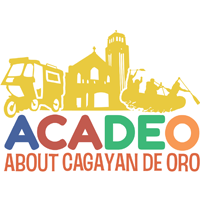09 Jan Kogi-Q and Green Haven Shabu Shabu: Two Newly Opened Restaurants at the Limketkai Center
In a media and history symposium held last year in this city, it was probably coincidence that two prominent speakers – one from the media and the other a noted historian – mentioned in their talks that “Kagay-anons probably inherited their palates and appetites from the god ‘Bathala’ who loved to eat and taste new cuisine.” Perhaps this sums up the fact that Kagay-anons love to eat, and eat they will.
New restaurants that open – big or small – will always get the normal deluge of Kagay-anons wanting to taste “what’s new” and “what’s up with this new one.” Word of mouth travels fast in Cagayan de Oro (it’s faster now, especially with today’s social media) and this “bamboo telegraph” can spell the difference between a successful restaurant and one that’s destined to be closed in a few months. But should the restaurant offer good food and perhaps something really different, people will tend to continuously flock to it intermittently, but not regularly though, in the years to come since Kagay-anons have a tendency to tire out after having tasted the same thing over and over.
Thus, for a restaurant to be continuously successful in Cagayan de Oro, it has to be able to offer something new every now and then. With the recent opening of Kogi-Q Luto-Luto Ta and Green Haven Shabu Shabu Restaurant, this business formula is again proven to be true.
Kogi-Q Luto-Luto Ta
Kogi-Q Luto-Luto Ta is a restaurant line from Cebu that is an offshoot from the Cebu-based restaurant line, Choobi-Choobi Flavors Corporation. It recently opened at the 2nd level of the East Annex Building (near Shopwise) at the Limketkai Center Mall and right beside its sister franchise, Choobi-Choobi. It is open during the mall’s business hours up to around 10:00 p.m.
The dining concept of Kogi-Q is to allow customers to cook (grill or fry is more like it) their own food at their own table. So there is the combination of enjoying cooking the food, bonding between family, friends, or office mates, and enjoying the cooked food.
The owners of the franchise equate this concept to family backyard or beach barbecues wherein everybody is chipping in with the cooking while animated conversation is going around. When it’s time to eat, the cooked food brings the bonding closer since the cooking was a group effort.
This concept is termed as a “Yakiniku” style of eating. In fact the term “Kogi” is a Korean term that means “rowing” because when a group is rowing a boat everybody must be in sync. “Yakiniku” simply means “roasting. It’s sort of like a “cook and eat all-you-can” restaurant with prices ranging from P270 to P350 per head. There is a “no left-over” policy and if you do have left-overs you need to pay up an additional P150 and you can’t it take home either.
This is not the first time a restaurant with this concept has opened in the city. A “Sugba all-you-can” open restaurant opened some months ago along Corrales Avenue, but unfortunately, it fell flat on its face since the smoke from the cooking tended blow everywhere and the quality of the food was less than mediocre.
Green Haven Shabu Shabu Restaurant
Many Kagay-anons will probably remember the Green Haven at the Rosario Strip at the Limketkai Center Mall as an eat-all-you-can vegetarian restaurant that offered really big bowls that you filled up with different ingredients that you choose from and they would cook it for you. The restaurant has now reopened as the Green Haven Shabu Shabu Restaurant still located in the same area after a brief renovation closure.
Green Haven’s eat-all-you-can rates are P500 for adults and P300 for children 5 years old and below. What is now different with the restaurant is that you now have a choice between the Mongolian Bowls that they normally serve or you can partake of other foods and desserts that they serve for the eat-all-you-can. You have a choice of between the two, but you can’t mix up both. This is probably why the original Green Haven name has been added with Shabu-Shabu since the word literally means “to shove” in Korean.
This literally sums up the eat-all-you-can atmosphere as you attempt to “shove” as much food into your bowl or plate as you can. With the Mongolian Bowl, you need to shove in as much as you can and you need to be careful what you mix into your bowl since you’re only given one go at your bowl and once they cook what you mixed up you can’t go back to add anything. This is probably why there is a sign on the wall that says, “Don’t blame the cook; he just started the fire.”
For customers who don’t want to go into the buffet food, they can order from a menu lineup that offers Filipino and Korean food and even delectable desserts.
Even in the past Green Haven has received its flooding share of good reviews due to the really fresh and good ingredients and food it serves. It is open during the mall’s business hours up to around 10:00 p.m.
Conclusion
Perhaps if Bathala were still alive today, this deity would have agreed to partake of the food from Kogi-Q Luto-Luto Ta and Green Haven Shabu Shabu Restaurant. Since he’s gone now, Kagay-anons now get to enjoy what he has endowed to them from his palate spirit, assuming this story is true. But, ask any Kagay-anon and they’ll tell you that whatever the story, they all love to eat, and they will go on eating so long as restaurants such as these will keep up with the business.













No Comments